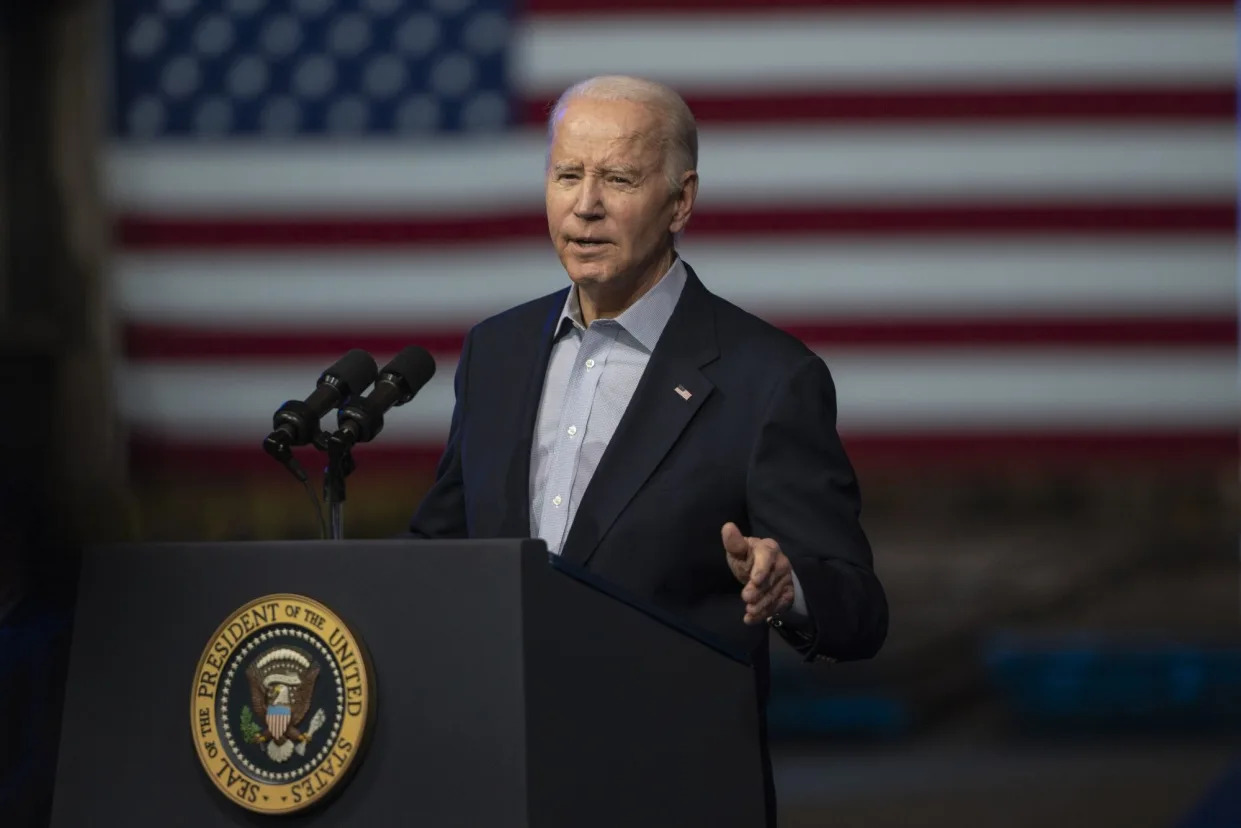Jennifer A. Dlouhy
Tue, January 16, 2024

(Bloomberg) -- Environmentalists are urging the White House to use an obscure legal tool to thwart TC Energy Corp.’s planned expansion of a natural gas pipeline in the Pacific Northwest that they say would stoke climate change.
The GTN XPress Project — which would boost capacity on TC Energy’s existing Gas Transmission Northwest pipeline by roughly 6% — won approval from the Federal Energy Regulatory Commission in October.
But now scores of green and grassroots groups are lobbying the Biden administration to intervene, exploiting a little-known provision in the Clean Air Act that empowers a White House council to do a fresh review of the project. Nearly 150 organizations outlined their strategy in a letter Tuesday to the head of the Environmental Protection Agency and other top administration officials.
The gambit presents a fresh test of President Joe Biden’s climate commitments — and another chance for him to bolster his green bonafides with voters before November’s election. Biden is under pressure to quash fossil-fuel ventures, including new liquefied natural gas exports, after alienating some supporters by authorizing a mammoth ConocoPhillips oil development in Alaska last year.
FERC has drawn special scrutiny from activists who fault it for approving nearly all gas pipeline proposals before the commission in the past two decades.
“There needs to be a change of course if the administration is actually going to make progress toward reducing our greenhouse gas emissions,” said Audrey Leonard, a staff attorney with Columbia Riverkeeper, which is part of the push. “This is a fantastic opportunity for the EPA to show its commitment to addressing the climate crisis and environmental justice issues.”
If pipeline opponents prevail, the White House Council on Environmental Quality could broker a compromise over EPA claims FERC ignored how much the project would boost natural gas production and resulting greenhouse gas emissions. That could prompt fresh scrutiny and even a potential project rejection.
Though federal agencies have referred 28 disputes to the council since 1974, most were in the 1970s and 80s. Only two happened this century.
Obscure laws can be powerful options: Environmentalists persuaded former President Barack Obama to block new oil development in US Arctic waters by invoking a once little-known 1953 statute weeks before leaving the White House.
Growing Urgency
Activists make the case that this is a way for Biden to ensure his climate commitments aren’t undermined by fossil-fuel project approvals from independent agencies such as FERC. They’ve encouraged the president to get more aggressive on climate by employing every legal weapon he has to halt crude exports and thwart new drilling.
There’s “a growing sense of urgency” around climate change and FERC’s approval of fossil-fuel infrastructure, said Kenny Stancil, a senior researcher at the Revolving Door Project that led the push. “The Biden administration has neglected to use this authority to date, but if there were a successful example of it being used, then maybe we could pull that lever more frequently and on different projects.”
TC Energy’s plan involves upgrades to compression stations in Idaho, Washington and Oregon that would allow more Canadian natural gas to flow through a pipeline system that supplies consumers along the West Coast.
Read More: Pacific Northwest Gas Proposal Highlights FERC Balancing Act
Supporters say the venture is needed to provide reliable, affordable energy for California, following gas price spikes, and that it can be done with minimal disruption. TC Energy says the project “will enhance market access and reliability” for growing supplies of Canadian gas.
However, US senators and state attorneys general from the region condemned the expansion, joining environmental groups who say it would boost pollution in neighboring communities, threaten public safety and undermine decarbonization commitments of Oregon, Washington and California.
EPA Misgivings
The EPA already raised misgivings, telling FERC at least twice the commission hadn’t sufficiently assessed a range of emissions associated with the expansion.
But now the agency can go further, the groups urge, by asking the White House council to wade into the fight — an intervention they say is essential to ensure public health and welfare take precedence over corporate goals. Otherwise, they say, FERC flouted federal environmental law by only considering alternatives that would meet the developer’s objectives.
The law “does not ask federal agencies to be the stewards of corporate developers’ wishes,” the groups say, but instead “asks every federal agency to ensure that it is acting as a trustee of the environment for the American public.”
The tactic takes advantage of the EPA’s unique legal authority to ask the White House council to step into disputes that imperil environmental quality or public health and welfare. Where federal agencies generally have 25 days after publication of environmental assessments to seek the council’s involvement, the Clean Air Act sets no time limit on the EPA, which can raise issues even after project approval.
The last similar intervention was in 2017, when the council effectively blocked plans for a levee in Missouri over concerns it would drain a Mississippi River floodplain and harm fish, wildlife and wetlands.
Bloomberg Businessweek
No comments:
Post a Comment